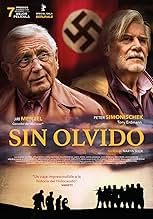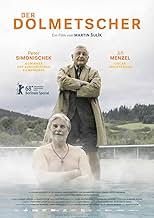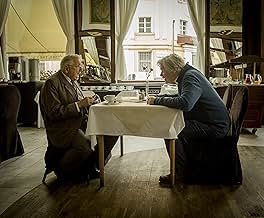As the movie opens, Ali Ungár, an 80 year old widowed Slovak Jew residing in Bratislava alights from a train in Vienna and makes his way to an address where he believes SS Obersturmbannführer Graubner lives; Graubner was responsible for the murder of his parents during the war. He does not find Graubner but his son Georg, who is aware of his father's crimes but seems to be hiding something and the two men part in tense, unfriendly terms.
A short time later Georg appears in Ali's Bratislava apartment. He has found a stash of wartime letters that his father sent him during the war from various places in then Czechoslovakia. Georg offers Ali to hire him as a translator to visit the places mentioned in the letters, an offer that Ali accepts since it may throw light on the circumstances of his parents' death. The rest of the movie is on Georg and Ali's trip where they collect information from archives and testimony from surviving witnesses. In the process Ali reconnects with his smart, principled daughter who is running a center for Ukrainian children displaced by the Donbass war and we learn from snippets of conversation a few things about Ali, Georg and their families.
This is a quality movie, one of these that you like the better the more you think about it. It confronts you with deep and possibly unsolvable questions such as: how do you combine normal feelings towards your father if you know he is a mass murderer, how you conciliate with living in a country where many citizens enabled and facilitated the work of the SS and Wehrmacht murderers. It does not preach or pontificate and leaves the conclusions (if any exist) to the viewer. Direction, cinematography and acting are all first rate. A curiosity: Ali is played by Jiri Menzel, one of the key directors that placed postwar Czechoslovakia in the forefront of world cinema.

![Watch Trailer [OV]](https://m.media-amazon.com/images/M/MV5BY2ViMzM5OGEtZjEyZi00MjFkLWJlYmItNTcyYjUxOGRmZmQ1XkEyXkFqcGdeQXRyYW5zY29kZS13b3JrZmxvdw@@._V1_QL75_UX500_CR0)


























